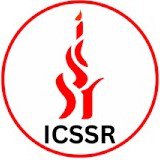About ARDMS
The Academic Research Data Management System (ARDMS) functions as a centralized, comprehensive solution for managing the entire lifecycle of research data within academic institutions. With the vast amounts of data produced across diverse fields, effective data management has become increasingly crucial. This ARDMS provides researchers with structured support, starting from the initial planning and collection stages to the secure storage, long-term preservation, sharing, and reuse of research data. Designed to uphold the FAIR principles—making data Findable, Accessible, Interoperable, and Reusable. It serves as an essential tool for academic libraries and researchers alike, ensuring that research outputs are not only maintained and preserved but also readily available for future use and exploration.
Mission & Vision
The core mission of this system is to deliver essential services that aid researchers in managing their data efficiently and in compliance with regulatory requirements. It includes secure storage solutions that protect data integrity and reduce the risk of data loss, robust metadata management for detailed data descriptions, and adherence to data management policies that align with funding bodies and publishers’ standards. Additionally, it offers the features for data discovery and sharing, enabling researchers to make their work more visible and accessible to others in the field. By offering these services, it allows researchers to focus on their primary scientific pursuits, confident that their data is being properly managed, preserved, and safeguarded for future access and use.
Our Process
The increasing importance of ARDMS in academic libraries is largely driven by evolving research funding and publication requirements. As research data becomes more valuable and integral to validating scientific findings, funding agencies and publishers are placing greater emphasis on transparent and accessible data practices. Many funding bodies now require researchers to develop detailed Research Data Management Plans (RDMPs) as part of their project proposals, which outline how data will be collected, stored, shared, and preserved. Similarly, publishers increasingly expect researchers to make underlying data publicly accessible to promote reproducibility and transparency in scientific publications. This ARDMS supports these requirements by providing standardized workflows for data management, ensuring compliance with relevant policies, and offering advanced digital preservation capabilities. By doing so, it helps researchers and academic institutions meet funder mandates and publishing standards more efficiently and effectively.
Moreover, this ARDMS empowers librarians and data stewards to assume more proactive roles in supporting researchers throughout the research process. Librarians with expertise in data curation, preservation, and metadata management play an essential role in managing data quality, ensuring that datasets are well-documented and accessible. Their involvement aids in maintaining high standards for data integrity and usability, thereby contributing to the overall success of the RDMS. By working closely with researchers, librarians and data stewards add significant value to the research lifecycle, offering guidance on data management practices and contributing to the institution's research output quality.

Our Core Values
Collaboration
We foster partnerships and teamwork among researchers to achieve meaningful results.
Innovation
Our platform embraces cutting-edge technologies to support advanced research.
Integrity
We uphold ethical standards in data management and sharing practices.

Meet Our Team
Our dedicated team of professionals is committed to providing a robust platform for researchers worldwide. With expertise in social sciences, technology, and data management, our team ensures ARDMS continues to evolve and meet the needs of its users.
Learn More About Our Team